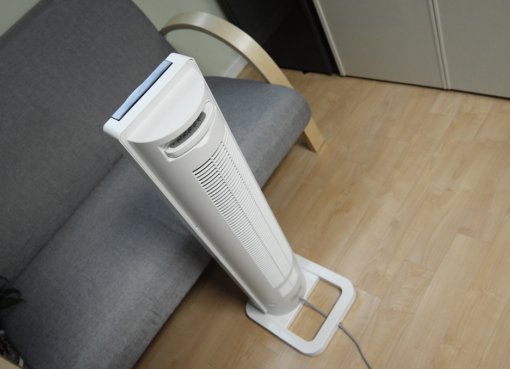Maintenance Jobs: Keeping the World Running Smoothly

Maintenance jobs play a vital role in ensuring the smooth and efficient operation of various systems and equipment across numerous industries. From keeping our homes comfortable to ensuring the safety and functionality of critical infrastructure, maintenance professionals are essential to our daily lives. This article explores the diverse world of maintenance jobs, providing insights into the various roles, skills, and career paths available.
What Do Maintenance Workers Do?
Maintenance workers are responsible for the upkeep, repair, and preventative maintenance of various systems and equipment. Their responsibilities can vary greatly depending on the specific industry and role, but may include:
Building Maintenance:
Repairing and maintaining HVAC systems (heating, ventilation, and air conditioning).
Plumbing repairs and maintenance.
Electrical repairs and maintenance.
Painting and decorating.
Minor carpentry and construction work.
Groundskeeping and landscaping.
Industrial Maintenance:
Maintaining and repairing industrial machinery and equipment.
Troubleshooting and diagnosing mechanical and electrical problems.
Performing preventative maintenance checks.
Overseeing production lines and ensuring smooth operations.
Automotive Maintenance:
Diagnosing and repairing vehicle engines and other mechanical components.
Performing oil changes, tire rotations, and other routine maintenance tasks.
Conducting safety inspections.
Aircraft Maintenance:
Inspecting, maintaining, and repairing aircraft components.
Ensuring aircraft safety and airworthiness.
Types of Maintenance Jobs
The field of maintenance encompasses a wide range of roles, including:
Building Maintenance Technician: Responsible for the overall maintenance of buildings, including plumbing, electrical, and HVAC systems.
HVAC Technician: Specializes in the installation, maintenance, and repair of heating, ventilation, and air conditioning systems.
Plumber: Installs, repairs, and maintains plumbing systems, including pipes, fixtures, and appliances.
Electrician: Installs, repairs, and maintains electrical systems, including wiring, lighting, and electrical equipment.
Industrial Mechanic: Maintains and repairs industrial machinery and equipment in manufacturing plants and factories.
Automotive Technician: Diagnoses and repairs vehicles, including cars, trucks, and motorcycles.
Aircraft Mechanic: Maintains and repairs aircraft components and systems.
Facilities Manager: Oversees the maintenance and upkeep of entire facilities, including buildings, grounds, and equipment.
Essential Skills for Maintenance Workers
Technical Skills: Strong mechanical and technical skills, including the ability to diagnose and repair equipment.
Problem-Solving Skills: The ability to identify and troubleshoot problems effectively.
Physical Fitness: The ability to perform physical labor, including lifting, bending, and standing
for extended periods.
Safety Awareness: A strong commitment to safety and the ability to follow safety protocols.
Communication and Interpersonal Skills: The ability to communicate effectively with colleagues, supervisors, and clients.
Attention to Detail: The ability to perform tasks accurately and with precision.
Career Paths in Maintenance
Apprenticeship Programs: Many maintenance roles require formal training through apprenticeships.
Trade School Certifications: Obtaining relevant certifications from trade schools can enhance career prospects.
On-the-Job Training: Gaining experience through on-the-job training is essential for career advancement.
Continuing Education: Pursuing continuing education courses to update skills and stay abreast of industry advancements.
Benefits of a Career in Maintenance
Job Security: The demand for skilled maintenance workers remains consistently high across various industries.
Good Earning Potential: Maintenance jobs often offer competitive salaries and benefits packages.
Job Satisfaction: The satisfaction of contributing to the smooth operation of essential systems and equipment.
Career Growth: Opportunities for career advancement, including supervisory and management roles.
Variety of Work: The opportunity to work on a wide range of projects and gain diverse experience.
Challenges and Considerations
Physical Demands: Maintenance work can be physically demanding, requiring lifting, bending, and working in challenging environments.
Safety Risks: Working with machinery and equipment can involve safety risks, requiring adherence to safety protocols.
On-Call Availability: Some maintenance roles may require on-call availability for emergency repairs.
Staying Updated: The industry is constantly evolving, requiring continuous learning and adaptation to new technologies.
Tips for Success
Gain Relevant Training and Certifications: Obtain relevant certifications and complete any necessary training programs.
Develop Strong Technical Skills: Focus on developing strong mechanical and technical skills.
Prioritize Safety: Always prioritize safety and adhere to all safety regulations.
Build a Strong Work Ethic: Demonstrate reliability, punctuality, and a strong work ethic.
Network with Other Professionals: Build relationships with other maintenance professionals to learn from their experiences.
FAQs
What does a maintenance job typically involve?
Maintenance jobs encompass a wide range of tasks focused on the upkeep of buildings, equipment, and machinery. These tasks include repairing, servicing, cleaning, and ensuring that systems like HVAC, plumbing, electrical, and mechanical equipment are functioning correctly. Maintenance workers may also conduct routine inspections, address wear and tear, and handle emergency repairs.
What qualifications are needed for a maintenance job?
The qualifications for maintenance jobs vary based on the specific role. For general maintenance technicians, a high school diploma or GED is typically required, but specialized positions may need additional certifications or experience. For example, electricians or plumbers must have formal apprenticeships or licensing to ensure that they meet safety and regulatory standards. Some employers also require experience in maintenance work, mechanical systems, or specific equipment.
What skills are essential for a maintenance worker?
Key skills include problem-solving, attention to detail, mechanical aptitude, and the ability to troubleshoot and fix a wide variety of issues. Good communication skills are also essential for coordinating with supervisors, other staff members, or clients. Additionally, maintenance workers should be physically fit, as the job often involves lifting, carrying heavy tools, and working in tight or uncomfortable spaces.
What are the different types of maintenance jobs?
Maintenance jobs can be categorized into several types, including preventive maintenance, corrective maintenance, predictive maintenance, and emergency maintenance. In order to avoid malfunctions, preventive maintenance entails routinely planned inspections and service. Corrective maintenance addresses repairs when equipment malfunctions. Predictive maintenance uses data and technology to predict when a failure may occur, allowing repairs to be made before issues arise. Emergency maintenance is needed when unexpected failures occur, and immediate action is required.
How often should maintenance work be performed?
The frequency of maintenance depends on the type of equipment, facility, or machinery involved. For example, HVAC systems in commercial buildings should be serviced quarterly, while industrial machines may require more frequent checks depending on usage. Preventive maintenance schedules are typically set according to manufacturer guidelines, usage patterns, or industry standards. Regular inspections are key to spotting potential issues before they cause major problems.
In summary
Maintenance jobs are essential for the smooth functioning of our society and economy. By providing essential services and ensuring the proper upkeep of critical systems, maintenance professionals play a vital role in our daily lives. With a strong work ethic, dedication to continuous learning, and a commitment to safety, individuals can build successful and rewarding careers in this essential field.
To read more, Click here



Leave a Comment